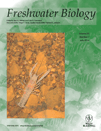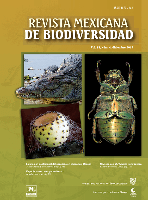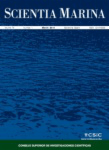
Palawan Scientist
Scope & Guideline
Highlighting Palawan's Unique Ecological Insights
Introduction
Aims and Scopes
- Ecological and Environmental Research:
The journal publishes studies on biodiversity, ecosystems, and conservation efforts in Palawan, addressing issues such as marine protected areas, freshwater ecosystems, and the impact of human activities on natural resources. - Socioeconomic Studies:
Research exploring the livelihoods, cultural practices, and socio-economic challenges faced by communities in Palawan, particularly those reliant on marine and agricultural resources, is a significant focus. - Innovative Technological Applications:
The journal includes works that apply innovative technologies in environmental management, agriculture, and resource utilization, showcasing advancements in areas such as wastewater treatment and bioenergy. - Education and Pedagogy:
Papers discussing educational methodologies, particularly in science and mathematics, highlight the journal's commitment to improving teaching practices and learning outcomes in the region. - Biodiversity and Genetic Studies:
Research on the genetic diversity of local species, including aquatic organisms and plants, contributes to understanding biological resources and their conservation.
Trending and Emerging
- Impact of COVID-19 on Local Communities:
Several recent papers have explored the socio-economic impacts of the COVID-19 pandemic on fishing households and educational methodologies, indicating a heightened interest in understanding resilience and adaptation in crisis situations. - Sustainable Resource Management:
There is a growing emphasis on sustainable practices in resource management, particularly in fisheries and agriculture, as evidenced by studies on livelihood assets and the profitability of local species. - Technological Innovations in Environmental Science:
Research focused on innovative technologies, such as nanofibers for applications in environmental management and new methodologies for wastewater treatment, is increasingly prominent, reflecting a trend towards integrating technology with sustainability. - Genetic and Biodiversity Studies:
Emerging themes in genetic studies of local species, particularly in aquaculture and agriculture, highlight a focus on biodiversity conservation and the potential for biotechnological applications. - Social Dimensions of Marine Conservation:
Research addressing gender awareness and social perceptions regarding marine protected areas suggests an emerging interest in the social dimensions of environmental management and conservation strategies.
Declining or Waning
- Historical Studies of Fisheries:
Although historically significant, research specifically focused on the historical aspects of fisheries management and species status appears less frequently in recent issues, possibly overshadowed by more pressing contemporary issues. - Traditional Agricultural Practices:
Previous emphasis on traditional agricultural methods and their evaluation seems to be waning, replaced by a focus on modern technological interventions and sustainable practices. - Conventional Marine Resource Management:
The focus on conventional marine resource management strategies is diminishing, as newer methodologies and integrated approaches to ecosystem management gain traction.
Similar Journals

REVISTA DE BIOLOGIA MARINA Y OCEANOGRAFIA
Connecting Scholars to the Wonders of the SeaREVISTA DE BIOLOGIA MARINA Y OCEANOGRAFIA is a prominent academic journal dedicated to the fields of marine biology and oceanography, published by the Faculty of Marine Sciences and Natural Resources at Universidad de Valparaíso, Chile. Since its inception in 1996, this journal has been a vital platform for disseminating research findings and advancements in aquatic sciences, covering a breadth of topics relevant to the marine environment. With its current impact positioned within the Q4 quartile of both Aquatic Science and Oceanography categories in 2023, the journal serves as an essential resource for scholars, practitioners, and students alike, aiming to enhance their understanding of marine ecosystems. While the journal does not provide open access options, it continues to contribute valuable insights, helping to foster a deeper appreciation for oceanographic science and marine biodiversity. Located in the scenic city of Viña del Mar, Chile, this publication invites manuscripts that push the boundaries of knowledge and stimulate discourse within the marine sciences community, thereby promoting sustainable management and conservation of oceanic resources.

GULF AND CARIBBEAN RESEARCH
Advancing Knowledge in Gulf and Caribbean EcosystemsGulf and Caribbean Research is an esteemed academic journal published by the University of Southern Mississippi, dedicated to advancing the understanding of aquatic ecosystems in the Gulf of Mexico and the Caribbean region. With an ISSN of 1528-0470 and an E-ISSN of 2572-1410, the journal serves as an essential platform for researchers and professionals in the fields of Aquatic Science, Oceanography, and Water Science and Technology, recognized in the 2023 Q3 Quartile rankings across these disciplines. The journal welcomes diverse contributions including original research, reviews, and technical notes, encouraging interdisciplinary approaches to address ecological and environmental challenges within its scope. Despite the absence of an open access option, it provides invaluable insights, evidenced by its Scopus rankings, which position it within the 31st to 33rd percentile across various related categories. The engaging research articulated in Gulf and Caribbean Research fosters dialogue and collaboration, making it a vital resource for those committed to scientific discovery and conservation efforts in these critical aquatic environments.

MARINE AND FRESHWATER RESEARCH
Bridging science and environmental stewardship.Marine and Freshwater Research is a prestigious journal published by CSIRO PUBLISHING that serves as a key platform for the dissemination of cutting-edge research in the fields of Aquatic Science, Ecology, and Oceanography. With an impactful presence since its inception in 1948, the journal provides critical insights into the dynamics of freshwater and marine ecosystems, promoting interdisciplinary approaches that contribute to our understanding of biodiversity and sustainability. Currently ranked in the Q2 category across major scientific domains, including Ecology and Aquatic Science, it enjoys a robust academic reputation supported by impressive Scopus rankings, such as Rank #66/247 in Aquatic Science and Rank #44/145 in Oceanography, reflecting its high citation impact and relevance. While offering a subscription-based access model, the journal remains dedicated to fostering dialogue and innovation within the scientific community, aiming to bridge the gap between research findings and practical applications in environmental management. Located in Australia, Marine and Freshwater Research is an essential resource for researchers, professionals, and students dedicated to exploring the complexities of aquatic ecosystems and advocating for their preservation.

FRESHWATER BIOLOGY
Illuminating the Wonders of Freshwater BiologyFreshwater Biology is a premier academic journal dedicated to advancing the study of freshwater ecosystems and their biological diversity. Published by Wiley, this highly esteemed journal features an impact factor that reflects its influence within the field of aquatic science, maintaining a distinguished Q1 rank as per the 2023 standards. The journal is recognized for its comprehensive coverage of original research articles, review papers, and methodological advancements that address a range of topics from ecological interactions to conservation strategies in freshwater environments. With its extensive archive dating from 1971 to 2024, Freshwater Biology serves as an invaluable resource for researchers, professionals, and students looking to deepen their understanding of aquatic systems. Though it does not currently offer Open Access options, readers can access vital findings and contribute to the ongoing discourse in this critical area of study. Based in the United Kingdom, with its commitment to rigorous peer-review and high publication standards, Freshwater Biology continues to be a cornerstone publication in the field, enhancing our understanding of freshwater ecosystems and their management.

Eco mont-Journal on Protected Mountain Areas Research
Connecting research and policy for thriving mountain environments.Eco mont-Journal on Protected Mountain Areas Research, published by the AUSTRIAN ACAD SCIENCES PRESS, UNIV INNSBRUCK, is a pioneering open-access journal dedicated to advancing knowledge in the fields of ecology, nature conservation, and the management of protected mountain areas. Established in 2009, this journal aims to publish innovative research, policy analyses, and management strategies that contribute to the sustainable development and conservation of mountain ecosystems. With a recognition of its importance within the environmental science community, Eco mont has been progressively indexed with Scopus ranks in various categories, reflecting its growing influence in the fields of nature and landscape conservation as well as ecology. As a vital platform for researchers, professionals, and students interested in the complexities and challenges of mountain area conservation, Eco mont provides immediate and widely accessible insights crucial for informed decision-making and policy formulation in mountainous environments.

Revista Mexicana de Biodiversidad
Unlocking the Secrets of Mexico's Biological DiversityRevista Mexicana de Biodiversidad is a prominent academic journal dedicated to the field of biodiversity and conservation, published by the prestigious Instituto de Biología, Universidad Nacional Autónoma de México. Since its inception as an Open Access publication in 2005, it has aimed to disseminate high-quality research that advances the understanding of biological diversity in Mexico and beyond. With an ISSN of 1870-3453 and an E-ISSN of 2007-8706, the journal caters to a diverse audience, including researchers, professionals, and students, by providing vital insights into ecological studies, conservation strategies, and the sustainable management of natural resources. The journal is committed to fostering scientific collaboration and promoting the significance of biodiversity in addressing contemporary environmental challenges. By publishing innovative and impactful research, the Revista Mexicana de Biodiversidad plays an essential role in the global discourse on biodiversity conservation.

Marine Biodiversity
Connecting Scholars in Aquatic ScienceMarine Biodiversity, published by SPRINGER HEIDELBERG, stands as a pivotal journal in the fields of Aquatic Science, Ecology, Evolution, Behavior and Systematics, and Oceanography. Established in 2009, it has gained a prominent place in academic discourse, evidenced by its Q2 ranking across multiple categories in the latest 2023 assessments. The journal operates out of Germany, specifically from its Heidelberg address, and caters to an international audience with a keen interest in the vast and complex dynamics of marine ecosystems. With an ongoing convergence of research outputs until 2024, Marine Biodiversity encourages contributions that expand our comprehension of marine life and its conservation, positioning itself as a vital resource for researchers, professionals, and students alike. Although currently not an open access journal, it maintains a robust reputation backed by its favorable Scopus ranks, which indicate its significant contribution to the respective fields. By disseminating high-quality, peer-reviewed articles, Marine Biodiversity plays an essential role in promoting scholarly communication and advancement in marine science.

AFRICAN JOURNAL OF MARINE SCIENCE
Highlighting groundbreaking research in African marine science.AFRICAN JOURNAL OF MARINE SCIENCE is a premier academic journal dedicated to advancing the field of aquatic sciences and ecological studies, published by Taylor & Francis Ltd. Established in 2003 and based in South Africa, this journal provides a vital platform for researchers, professionals, and students interested in the diverse and dynamic marine ecosystems of Africa. With an impressive impact factor reflected in its Q2 quartile ranking in both Aquatic Science and Ecology, Evolution, Behavior and Systematics categories, the journal showcases innovative research that addresses pressing environmental challenges. Open access options facilitate broad dissemination of knowledge, ensuring that cutting-edge findings are accessible to all stakeholders in the marine research community. As it converges towards its impressive milestone year of 2024, the AFRICAN JOURNAL OF MARINE SCIENCE serves as an essential resource for fostering scientific discourse and collaboration across the continent and beyond.

VIE ET MILIEU-LIFE AND ENVIRONMENT
Fostering Ecological Insights for a Healthier PlanetVIE ET MILIEU - LIFE AND ENVIRONMENT is a pivotal journal in the realms of aquatic science and ecology, serving as a vital platform for researchers and professionals interested in the interconnections between living organisms and their environments. Published by the esteemed OBSERVATOIRE OCEANOLOGIQUE BANYULS in France, this journal has been disseminating valuable research since its inception in 1980, with volumes covering various topics pertinent to environmental dynamics through to 2024. Despite its current classification in the Q4 quartile for both aquatic science and ecology, the journal offers a unique opportunity for scholars to contribute to niche areas often overlooked by more prominent publications. VIE ET MILIEU is committed to fostering a comprehensive understanding of ecological interactions and the conservation of aquatic ecosystems, making it an essential resource for those engaged in environmental science and biology. Researchers can access a wealth of knowledge that supports their work, encourages collaboration, and inspires innovative approaches to pressing ecological issues.

SCIENTIA MARINA
Innovating Research for Marine ConservationSCIENTIA MARINA, an esteemed journal published by the Consejo Superior Investigaciones Cientificas (CSIC) in Spain, focuses on critical studies within the fields of Aquatic Science and Oceanography. With an Open Access policy since its inception in 1998, this journal facilitates widespread dissemination of research findings, significantly enhancing accessibility for researchers, professionals, and students alike. Currently, SCIENTIA MARINA holds a Q3 ranking in both categories for 2023, demonstrating its commitment to advancing knowledge in marine and aquatic environments. With a convergence of research years from 1996 to 2024, it remains a pivotal platform for innovative research, encompassing various aspects of marine biology, ecology, and environmental science. The journal serves as an essential resource for scholars aiming to contribute to the understanding and preservation of marine ecosystems.